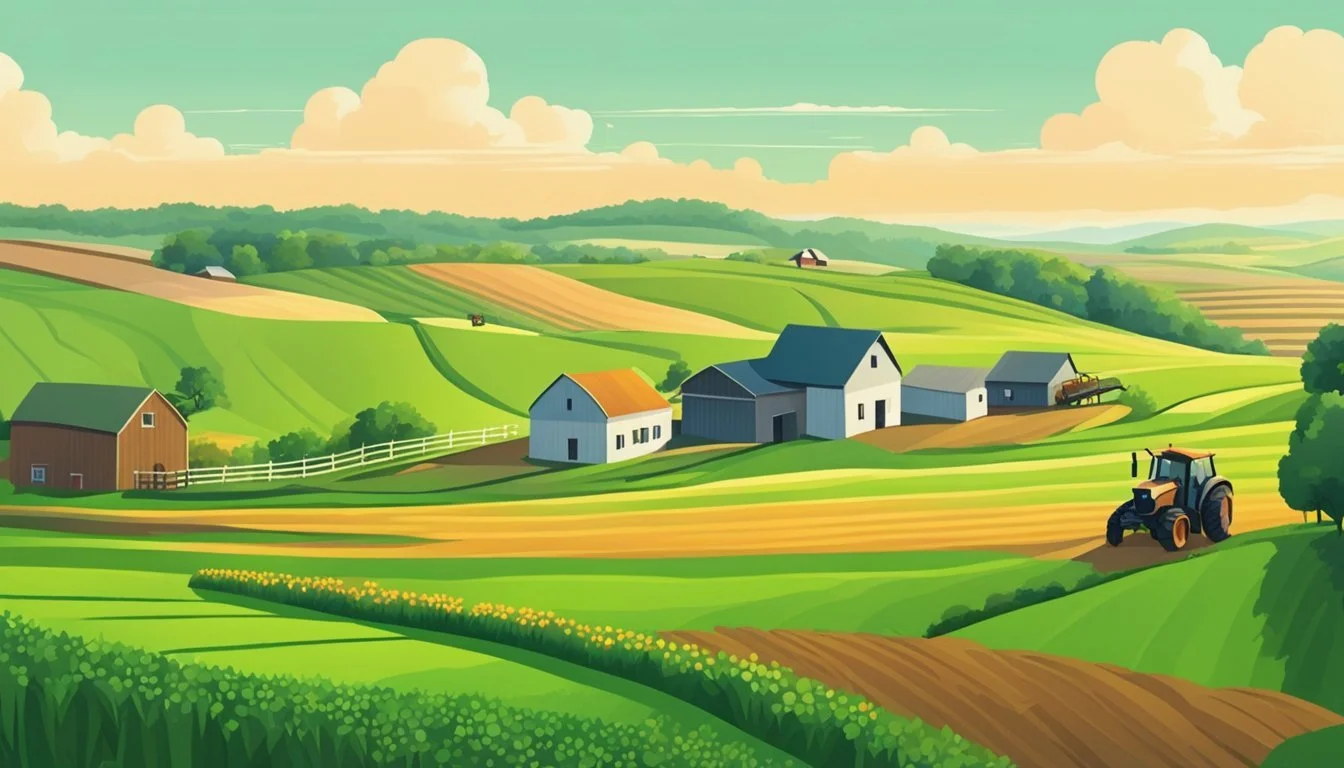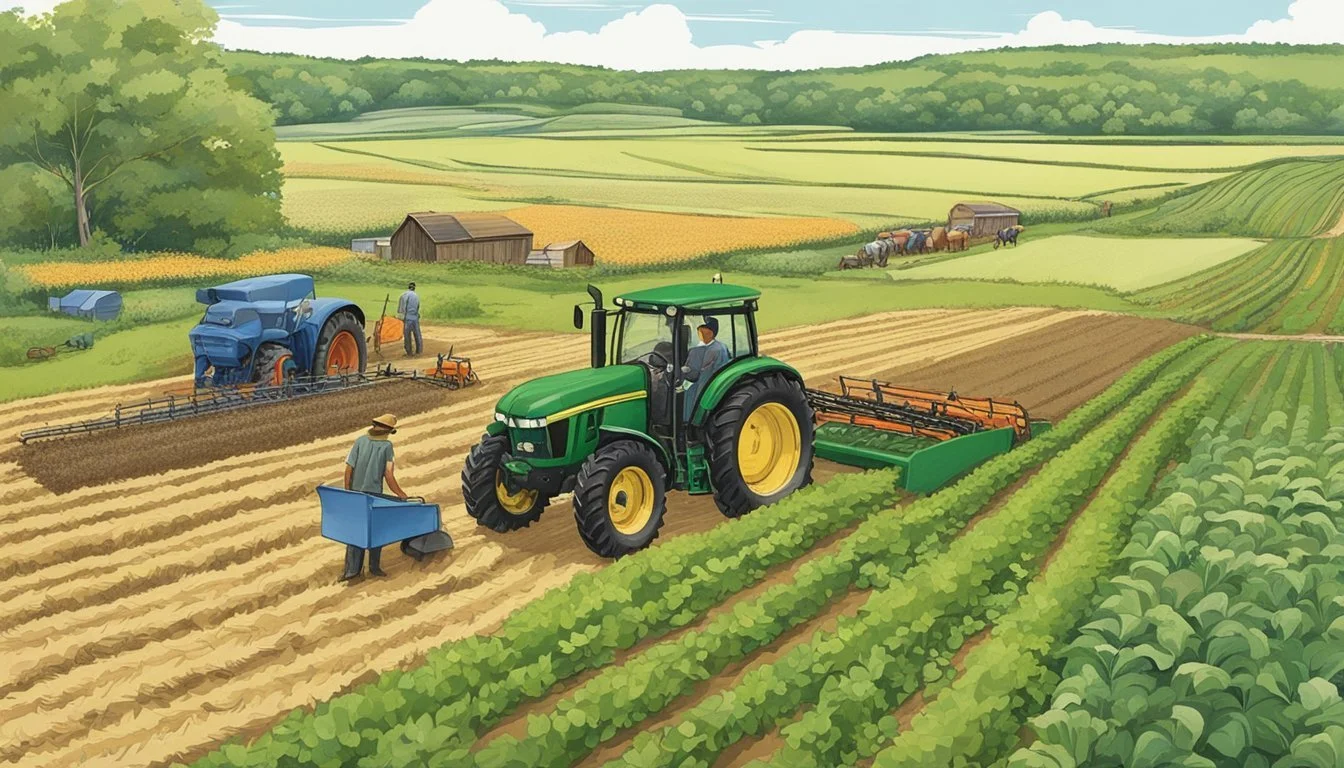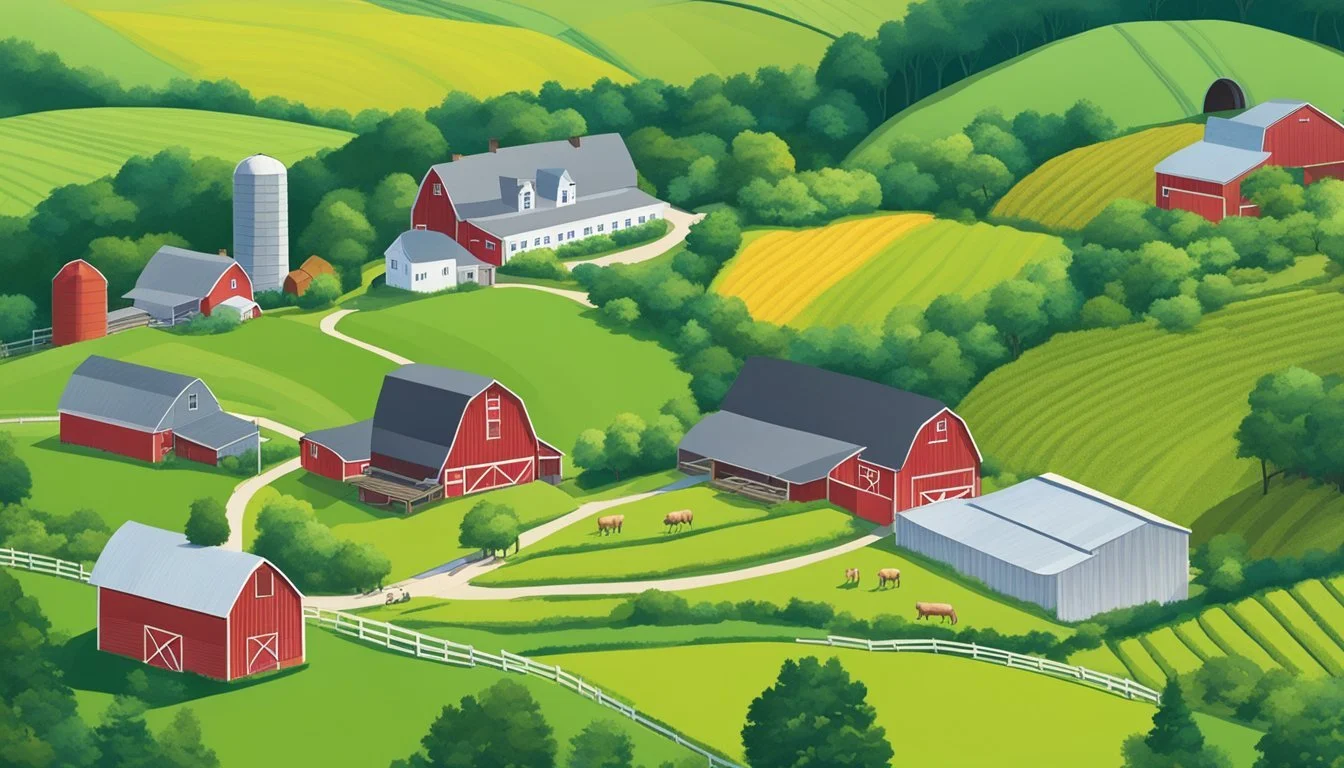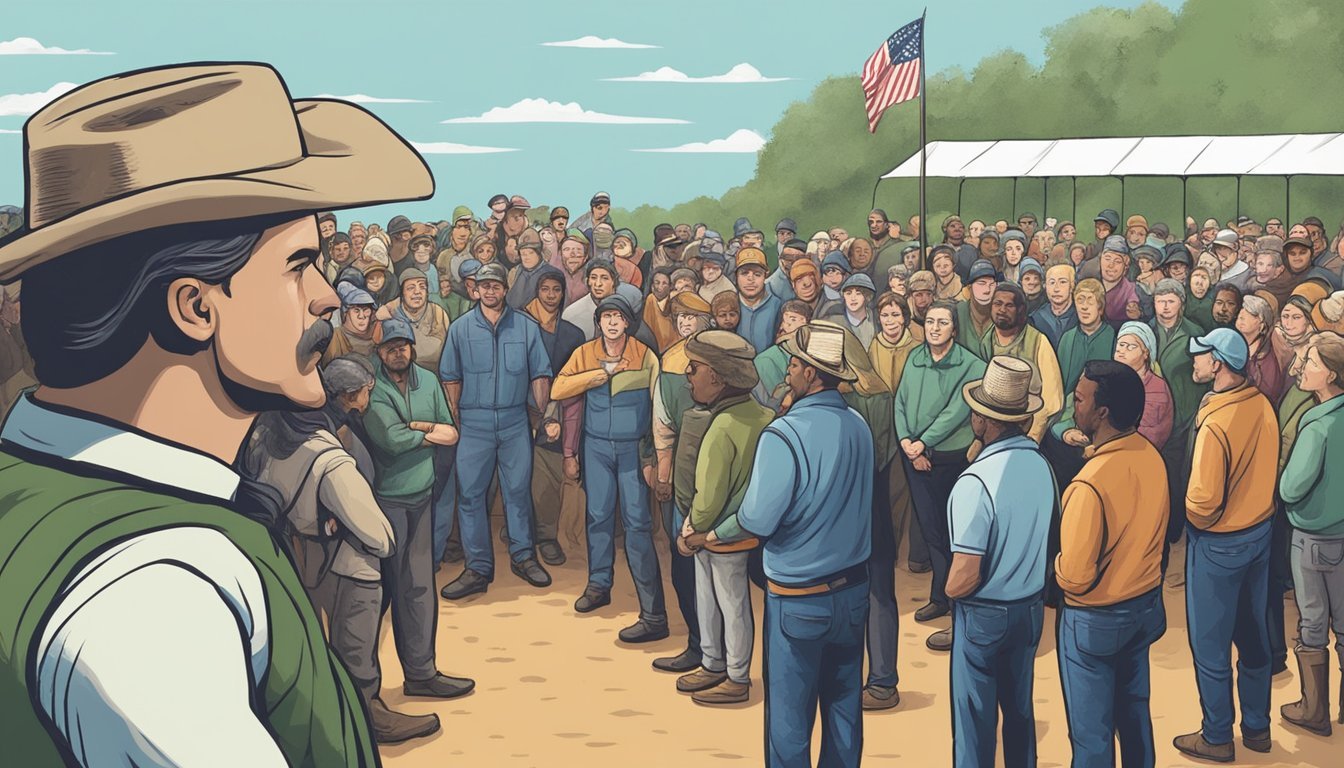Right to Farm Law in Massachusetts
Understanding Agricultural Protections
Massachusetts' Right to Farm laws serve as safeguarding measures for agricultural activities, designed to protect farmers and farm operations from nuisance lawsuits. Established to encourage the continuity and vitality of the agricultural community, these laws acknowledge the importance of farming to the local economy and environment. They ensure that, as long as farming practices are lawful and have been in place for more than a year, farmers have the right to continue their work without the threat of legal challenges that might arise from the ordinary operations of their businesses.
Defining farming in broad terms, the Commonwealth's statutes include a diverse range of agricultural activities under the protection of the Right to Farm law. This encompasses not only traditional farming but also includes aquaculture, floriculture, viticulture, and horticulture, among other activities. By recognizing the various facets of farming, from crop cultivation to livestock raising and forestry, the law adopts an inclusive stance, thereby reinforcing the agricultural sector's resilience against potential conflicts with non-farming neighbors and community developments.
Moreover, the application of these laws across entities related to farming, such as processing and marketing aspects, further strengthens the position of agriculture within Massachusetts. The broad protective measures of Right to Farm statutes reflect the Commonwealth's commitment to maintaining and promoting an environment conducive to agricultural growth and sustainability, balancing the interests of farming practices with community development and urban expansion.
Historical Context
Right-to-Farm laws have a significant role in balancing the needs of the agricultural community with the interests of neighboring landowners. These laws are critical to understand for anyone looking into agricultural practices and land use in Massachusetts.
Origin of Right-to-Farm Laws
Right-to-Farm laws originated as a response to the urban expansion into rural areas, where new residents often filed nuisance lawsuits against existing agricultural operations. Massachusetts, recognizing the need to protect its farming heritage, adopted Right-to-Farm legislation to safeguard farmers against such nuisance claims, provided that their farming operations were established for more than one year and constituted "ordinary aspects of said farming operation or ancillary or related activity".
States’ Right-to-Farm Statutes in the U.S.
Each state in the nation has its own version of Right-to-Farm statutes, with Massachusetts enacting several laws under different codes to ensure comprehensive protection. Key statutes in the state include:
Mass. Gen. Laws ch. 40A, § 3: Addresses zoning laws for agricultural use.
Mass. Gen. Laws ch. 111, § 125A: Concerns the state sanitary code.
Mass. Gen. Laws ch. 128, § 1A: Specifically protects agricultural land uses.
Mass. Gen. Laws ch. 243, § 6: Pertains to lien laws.
These statutes collectively work to uphold the rights of farmers and maintain the agricultural framework of the state, indicative of Massachusetts’s commitment to its agrarian roots within a modern legal framework.
Massachusetts Right-to-Farm Law Overview
Massachusetts Right-to-Farm Law formalizes the protection for farmers and agricultural activities within the state, aiming to preserve farmland by allowing agriculture to continue with reduced regulatory conflicts.
Legal Definition and Core Concepts
Right-to-Farm Law in Massachusetts is defined as legislation that safeguards farmers and their operations from undue local restrictions, excessive zoning, and nuisance claims, provided they adhere to generally accepted agricultural management practices. The core concept is to acknowledge the importance of agricultural enterprises, which include, but are not limited to, dairying, production, cultivation, growing, and harvesting of various agricultural commodities.
Zoning Protections: The law restricts local municipalities from enacting regulations that would unreasonably limit farming operations.
Nuisance Protections: It also offers a defense for farmers against nuisance lawsuits, often stemming from the ordinary noise, odor, dust, and other by-products of farming.
Accepted Practices: Farmers are expected to follow "generally accepted agricultural management practices" to qualify for right-to-farm protections.
Key Objectives and Benefits
The key objectives of the Massachusetts Right-to-Farm Law include:
Preventing Farmland Loss: By providing legislative backing, the law aims to deter the conversion of farmland to non-agricultural uses.
Supporting Farmers: It assists in the legal and regulatory defense of farmers' livelihoods, encouraging the continuity and initiation of agricultural operations.
The benefits of such legislation are multifaceted:
Economic Opportunities: Promotes agriculture-based economic opportunities by fostering a supportive environment for farm-related businesses.
Agricultural Growth: Since its enactment, Massachusetts has observed an increase in farm operations despite a decrease in farm acreage, indicating effective farm preservation.
Community Enhancement: The law also contributes to the preservation of the rural character and environmental quality of communities in Massachusetts.
By providing these protections and advantages, the Right-to-Farm Law in Massachusetts plays a crucial role in sustaining the agricultural industry within the state.
Fundamental Protections for Farmers
Massachusetts' Right to Farm Law safeguards farmers and their operations, ensuring stability and security within the agricultural sector. These protections are particularly significant in relation to nuisance lawsuits and the wide range of farming operations.
Protection Against Nuisance Lawsuits
Farmers in Massachusetts receive robust protection against nuisance lawsuits under the state's Right to Farm (RTF) law. Specifically, the law provides immunity to farmers and related entities from nuisance claims, so long as the farm activity is considered an "ordinary aspect of said farming operation or ancillary or related activity" and has been in operation for more than one year. This serves to secure the rights of farmers to carry on with their work without the undue burden of fighting legal battles related to, for instance, noise, odor, or dust commonly associated with agricultural practices, provided they comply with relevant regulations.
Cultivation and Farming Operations
The RTF law in Massachusetts encompasses a broad swath of agricultural activities. "Farming" or "agriculture" includes:
Cultivation and tillage of the soil
Dairying
Production, cultivation, growing, and harvesting of agricultural, aquacultural, floricultural, or horticultural commodities
Livestock raising
Growing and harvesting of forest products on forest land
These activities, vital to the state's agricultural productivity, may proceed with minimal hindrance from local opposition or regulatory constraints that do not account for the essential nature of agriculture to the community and economy. Farmers can thus focus on cultivation and dairying, among other farming operations, with a measure of certainty that their livelihood and contributions to the food supply are recognized and protected by law.
Agricultural Practices and Dimensions
Massachusetts’ Right to Farm Law recognizes and supports a variety of agricultural practices, ensuring that the state's diverse agricultural dimensions are both acknowledged and protected. This section explores the scope and particulars of the state's farming activities across different sectors.
Horticultural, Floricultural, and Aquacultural Practices
Massachusetts nurtures an array of horticultural and floricultural endeavors, spanning from the cultivation of flowers and ornamental plants to the meticulous care of fruit and vegetable gardens. The state encourages these practices through its legislation, which provides a conducive environment for growers. Aquacultural practices are similarly recognized, with farming operations including the breeding, rearing, and harvesting of aquatic organisms in both freshwater and marine environments.
Livestock and Poultry Management
The management of livestock and poultry falls within the state's definition of farming. This includes the raising of animals such as cattle, pigs, goats, and sheep, as well as poultry like chickens and turkeys. The law ensures that livestock care, breeding, and production activities are safeguarded as integral components of Massachusetts’s agricultural infrastructure.
Forestry and Lumbering Operations
Forestry and lumbering operations represent critical segments of Massachusetts's agricultural framework. The state's Right to Farm Law includes the growth and harvesting of forest products, a clear acknowledgment of its commitment to supporting the forestry sector. This commitment aids in the sustainment of practices related to woodland management and timber production.
Other Farming Commodities and Production
In addition to traditional crops and livestock, Massachusetts acknowledges the importance of other farming commodities and production arenas such as dairying, and the cultivation of viticultural commodities. The state's legislation underpins these diverse production practices, recognizing their roles in sustaining the agricultural economy and the culturing of farm operations across the state.
Regulatory Framework and Compliance
In Massachusetts, the Right to Farm Law aims to protect agricultural activities by providing a regulatory framework that balances farm operations with local interests. Compliance with state and local regulations is a cornerstone of this framework, helping to safeguard the rights of all parties involved.
State Laws and Local Bylaws
State Laws in Massachusetts explicitly support the Right to Farm, as set forth in various sections of the Massachusetts General Laws. Key statutes include, but are not limited to, Chapter 40A, Section 3, Paragraph 1; Chapter 90, Section 9; and Chapter 111. These laws are designed to protect farming activities from undue restrictions and to establish farming as an encouraged use of land, respecting both farmland and forest land.
Local bylaws complement state regulations by addressing the unique agricultural considerations of individual municipalities. These bylaws articulate the specifics that farmers must adhere to at the local level, often requiring that farming practices do not contravene public health and safety policies.
Key Aspects of State Laws and Local Bylaws:
Encouragement of agricultural use of land
Protection for farmers against nuisance lawsuits
Requirements for farmers to comply with health and safety regulations
Agricultural Commissions and Bodies
In Massachusetts, Agricultural Commissions serve as local resources, providing guidance and support to farmers for navigating state laws and local bylaws. By working with these commissions, farmers can ensure that their practices are in compliance with the established regulatory frameworks. These bodies also play a pivotal role in dispute resolution and advocate for the interests of the agriculture sector.
Roles of Agricultural Commissions and Bodies:
Guidance: Offer information and support for regulatory compliance
Advocacy: Represent the interests of the agricultural community
Mediation: Help in resolving conflicts between farmers and other parties
Farmers are encouraged to engage with these commissions proactively to foster a collaborative relationship with local authorities and their community.
Challenges and Public Disputes
In Massachusetts, the Right to Farm laws are designed to protect agricultural activities but also lead to distinct challenges, particularly in the realms of nuisance suits and environmental considerations.
Nuisance Suits and Community Relations
Massachusetts Right to Farm (RTF) laws provide farmers and farming operations with safeguards against nuisance lawsuits, as long as the farming practices are considered an "ordinary aspect of said farming operation." These laws require that the operation must have been in place for more than one year. Despite these protections, litigation still occurs, often centering on the tension between maintaining traditional agricultural practices and adapting to residential expansion into rural areas. Cases often arise when neighbors or community members feel that the noises, odors, or other byproducts of farming unduly interfere with their quality of life or property values.
Nuisance suits may involve:
Noise complaints from machinery or livestock
Odors from manure or other organic materials
Dust and pesticide drift affecting neighboring properties
Efforts to resolve these disputes hinge on balancing the rights and expectations of farmers with those of the community at large, potentially impacting community relations negatively if not managed with clear communication and understanding of the provisions of the Right to Farm laws.
Environmental Impact and Sustainable Farming
The RTF legislation lends itself to discussions around environmental impact and sustainable farming practices. On one hand, agricultural practices can contribute to environmental concerns, including pollution of water, soil, and air. On the other hand, farmers are often stewards of the land, practicing and innovating sustainable techniques to ensure the longevity and health of their farming operations and the broader environment.
The key issues include:
Water usage and management, particularly in drought-prone areas
Soil health, including erosion control and use of fertilizers
Air quality, including dust and emissions from equipment
Use of pesticides and their impact on neighboring lands and ecosystems
Navigating the balance between the legal right to farm and the pursuit of environmentally friendly practices is an ongoing challenge. Massachusetts encourages local communities to adopt local Right to Farm bylaws to raise public awareness and align farming operations with environmental and sustainable goals. The degree to which these bylaws successfully mitigate environmental concerns often hinges on the active cooperation between farmers, communities, and local government.
Support and Resources for Farmers
Massachusetts provides a robust framework of support and incentives for farmers, ensuring that agricultural pursuits remain viable and progressive. Various state programs and educational resources are designed to bolster the commonwealth's farming community.
State Support and Incentive Programs
The Massachusetts Department of Agricultural Resources (MDAR) champions several programs specifically tailored for farmers. These programs aim to aid new and established farmers alike, offering financial assistance, land preservation incentives, and tax benefits.
Financial Assistance: MDAR provides grants and funding opportunities for farmers to expand, improve, and sustain their operations.
Land Preservation: The state actively works to prevent the loss of farmland through programs like the Agricultural Preservation Restriction (APR) program, which helps farmers keep their land in agriculture.
Tax Incentives: Farmers can benefit from sales tax exemptions for certain agricultural products, and the state supports the Vacant Farm Land program to promote agricultural land use.
Education and Advocacy Groups
Education plays a pivotal role in supporting the agricultural industry. Massachusetts fosters this through initiatives and partnerships with advocacy groups.
Beginning Farmer Resources: Tailored programs and resources are offered to new farmers, including educational materials, workshops, and mentorship opportunities to ensure their success and sustainability in the industry.
Advocacy Groups: Numerous local agricultural commissions (AgComs) and organizations advocate for farmers' rights, promote agricultural interests, and serve as a wealth of knowledge and expertise to support the community at all levels.
Farmers in Massachusetts are encouraged to connect with these support systems and utilize the available resources to cultivate a thriving agricultural industry in the state.
Conclusion
Massachusetts' Right to Farm laws play a critical role in shaping the agricultural landscape of the state. As this area of legislation continues to evolve, two central themes emerge: the future direction of agriculture and the interplay between farming practices and expanding urban areas.
Future of Farming in Massachusetts
The agricultural sector in Massachusetts is positioned for sustained growth and greater resilience due to Right to Farm protections. These laws safeguard farmers from nuisance lawsuits, providing a stable legal environment that encourages investment and innovation in farming practices. They also serve as a testament to Massachusetts’ commitment to preserving its agricultural heritage while adapting to modern demands.
Protection: Massachusetts farmers are shielded from nuisance lawsuits if they comply with two principal conditions: conducting "ordinary aspects of farming" and being in operation for over one year.
Promotion: The Right to Farm laws promote an agriculture-based economy by supporting various agricultural, aquacultural, floricultural, and horticultural activities.
Navigating the Balance Between Farming and Urbanization
Massachusetts faces the challenge of maintaining harmony between farming activities and urban development. Right to Farm laws provide a framework to ensure that local land use does not unfairly discriminate against agricultural practices while also acknowledging the needs of non-farming populations and urban growth.
Conflict Minimization: Right to Farm bylaws aim to reduce conflicts between agricultural use and surrounding communities, ensuring coexistence.
Land Use: Local regulations must not impose discriminatory land use requirements on agricultural entities, striking a balance with urbanization pressures.
The Right to Farm laws in Massachusetts are central to agricultural sustainability, offering a blueprint for supporting a thriving agricultural future alongside urban expansion.









